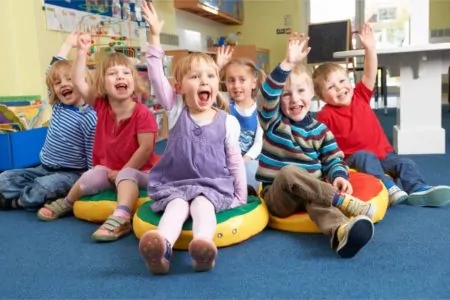Whether you are looking to understand your own Type A tendencies or you are a parent wondering why your oldest is so bossy, we are diving into the science and psychology behind birth order. Here are the essential stats and facts that define the first-born experience.
Key Facts About First-Borns
- They tend to be risk-averse: First-born children are statistically less likely to engage in risky behaviors like drug or alcohol abuse.
- They are natural caregivers: Eldest siblings often score high in conscientiousness because they help raise younger brothers and sisters.
- They gravitate toward leadership: First-borns are disproportionately represented in management roles, politics, and C-suite positions.
- They carry a mental load: Parents often place higher expectations on their first child, which can lead to perfectionism and anxiety later in life.
20 First-Born Child Facts and Statistics
We are going to walk through the most compelling research surrounding eldest children, covering everything from their undeniable drive to succeed to the heavy pressure they feel to perform.
Common Personality Traits of First-Borns
Do oldest siblings really share a universal personality profile? While every child is different, the data suggests that being first on the scene instills specific traits.
- They develop a strong superego: Oldest children often internalize rules and authority more intensely, leading to a stronger sense of “right and wrong” (1).
- They avoid substance abuse: Research indicates first-borns are less likely to use drugs or alcohol compared to their younger, more rebellious siblings (2).
- They excel in the classroom: Thanks to undivided parental attention in their early years, eldest children typically perform better academically (3).
- They are goal-oriented: Because they want to maintain their parents’ approval, first-borns tend to be organized, ambitious, and occasionally a bit stubborn about their goals.
- They are highly conscientious: When a new baby arrives, the oldest child often adopts a nurturing role; this fosters a lifelong trait of being reliable and responsible.
- They respect the status quo: First-borns generally prefer stability over chaos and are less likely to challenge established rules compared to later-borns (4).
- They may possess a higher IQ: It is not a myth; studies show eldest children have a 52 percent chance of having a higher IQ than their younger siblings, largely due to how parents interact with them (5).
The Psychology of Success and Achievement
It seems like first-borns are everywhere in the halls of power. Let’s look at how birth order influences careers, wallets, and fear responses.
- They have a leg up on success: Receiving the majority of parental resources (time, energy, and money) in those crucial early years often translates to better career outcomes (6).
- They make natural managers: One study found that while younger siblings tend to be entrepreneurial self-starters, first-borns thrive in structured management roles (7).
- Debate continues on career links: While many studies link birth order to success, some modern research suggests the correlation isn’t as rigid as we once thought, specifically regarding specific career choices (8).
- They play it safe: First-borns often struggle with a fear of failure; this makes them less likely to participate in dangerous sports or high-risk physical activities (9).
- They stay in school longer: Statistics show that eldest children attain higher levels of education and are more likely to secure high-paying, full-time employment (10).
- They dominate high-profile fields: An overwhelming number of astronauts, U.S. Presidents, and Harvard students are either first-borns or only children (11).
Navigating Family Expectations and Pressure
Being the first often means being the “guinea pig” for new parents. Here is how high stakes and family pressure shape the eldest child’s worldview.
- They act as the ‘Third Parent’: Many families unconsciously expect the oldest child to act as a role model and secondary caregiver, forcing them to grow up faster (12).
- High standards cause friction: Research shows that when parents set expectations too high, first-borns may react negatively, sometimes displaying aggression toward siblings over resources like toys.
- The burden creates self-doubt: The psychological weight of needing to be “perfect” can distort a child’s self-perception, leading to issues with self-worth if they fail to meet parental standards.
- ‘Eldest Daughter Syndrome’ is real: First-born girls report a specific type of pressure; they often feel responsible for the emotional well-being of the entire family (13).
- Parents aim higher for them: Parents are statistically more likely to have higher academic aspirations for their first child than for their subsequent children (14).
- Their wins are celebrated more: Since everything is a “first” for the parents too, the eldest child’s achievements get more fanfare; this trains the child to seek validation through achievement (15).
- Anxiety is a common companion: Due to inconsistent nurturing (new parents are learning, after all) and high pressure, first-borns are more prone to anxiety and dependency behaviors (16).
How Does Birth Order Affect Child Development?
Birth order theory isn’t new; it dates back to the early 1900s when Austrian doctor Alfred Adler proposed that your spot in the family lineup dictates your development. He argued that first-borns, middle children, and babies of the family all have distinct experiences that shape who they become.
Adler theorized that because first-borns lose their “only child” status when a sibling arrives, they develop specific traits, including:
- A need for adult attention.
- Mature language skills early on.
- A tendency to feel “dethroned” by siblings.
- Difficulty sharing possessions or affection.
- A conservative or authoritarian approach.
While modern science suggests personality is a mix of genetics and environment, the core of Adler’s theory holds up in one major way: the eldest child’s experience of parenting is fundamentally different from their siblings.






